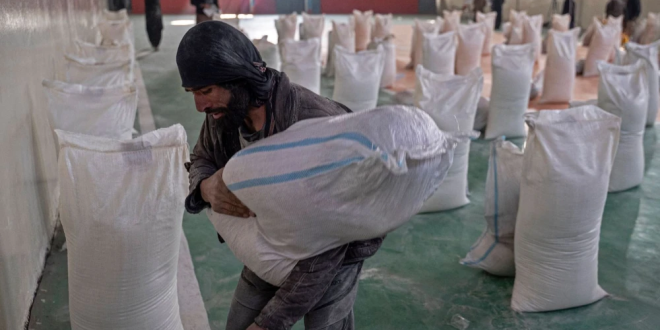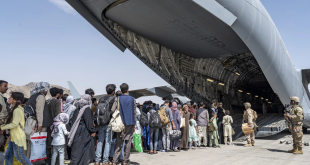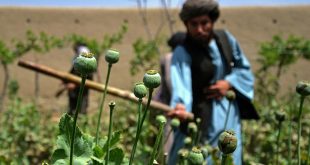AT News
KABUL – A confidential report prepared for the U.S. government reveals that the Taliban have “effectively infiltrated” United Nations aid deliveries in Afghanistan, using foreign charity as a revenue stream. The country’s ongoing reliance on international assistance, with approximately half of the population depending on aid to survive, has provided an opportunity for the Taliban group to exploit the delivery of aid for their own gain, the report has found.
The Taliban have sought to monopolize and control aid channels, viewing them as another source of income. Their actions have raised serious concerns about the integrity of aid distribution and the presence of U.N. agencies in the country responsible for delivering assistance to those in need.
The report, commissioned by the U.S. Agency for International Development (USAID) and obtained by Foreign Policy, raises doubts about the U.N.’s ability to oversee the flow of aid, including the approximately $2 billion received from the United States since the fall of Kabul.
The presence of at least 19 agencies in Afghanistan has led to an illegal operation by the U.N. since the Taliban’s decree in December, which banned women’s employment in NGOs, contradicting the U.N. Charter’s principle of non-discrimination. Many NGOs are now paying women to stay home while complying with the Taliban’s demand to have male relatives work in their place. This has further raised questions about the U.N.’s effectiveness and its ability to advocate for human rights in the country.
According to the report, the Taliban’s playbook for interfering with foreign aid includes intimidating and coercing local U.N. staff and pushing for more control over the delivery of tangible aid. NGOs are forced to enter agreements with ministries that are under the control of the Taliban’s secret service, leading to diminished bargaining power and acquiescence to the group’s demands.
The report also sheds light on the Taliban’s finances, revealing their adeptness at tax collection and budget management. The group retains a significant portion of Republic-era civil servants, enabling them to maintain a budget comparable to the previous government. However, the destination of much of their revenue remains unclear.
The Taliban, despite their reluctance to be seen as competent rulers, are willing to be perceived as such to legitimize their control. As a result, NGOs providing high-profile services like healthcare may be more tolerated, while civil society groups pushing for inclusivity and women’s rights face greater resistance.
The report concludes that foreign aid remains a significant economic prize for the Taliban, allowing them to profit from engagement with the U.N. system and the aid sector. Despite the reduced investment from the 20 years of U.S.-led intervention, the competition for foreign aid remains fierce.
As the situation unfolds, questions arise about how to effectively provide assistance to the needy in Afghanistan while preventing the Taliban from exploiting aid for their gain. With the report’s contents now public, the international community faces challenges in balancing humanitarian aid with accountability and human rights concerns in the war-torn country.
 Afghanistan Times
Afghanistan Times




